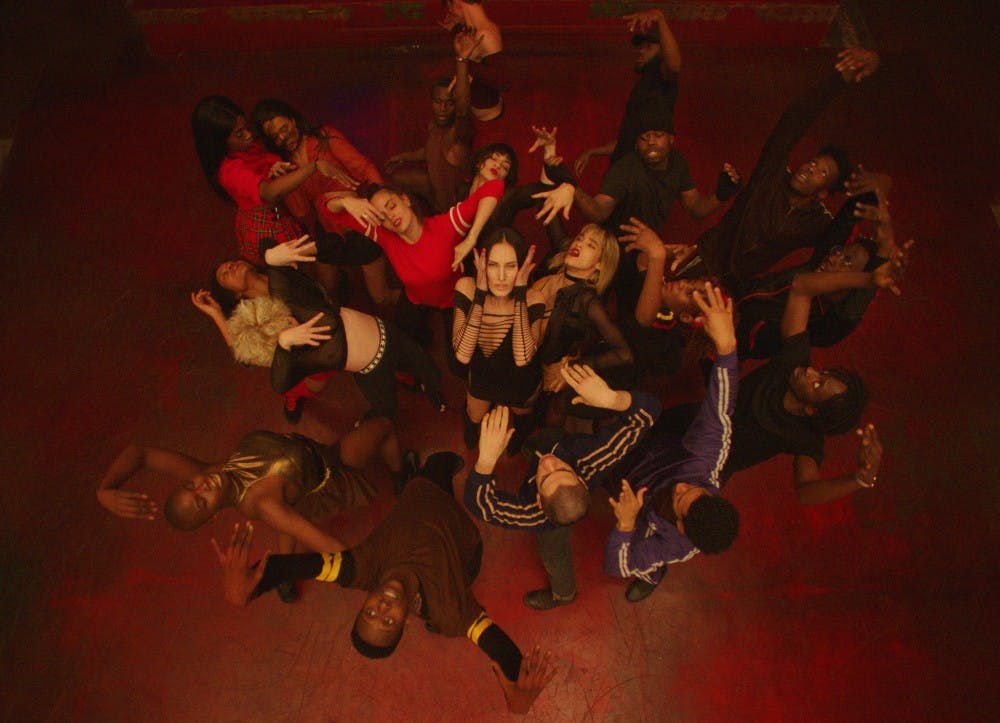When it comes to making audiences uncomfortable, sometimes movies go beyond the canon of horror film antagonists and confront people with the very worst of their own humanity. In the case of Gasper Noé’s Climax, uses a mind–bending cinematic style that replicates the chaotic, nightmarish experiences of his tormented characters. Climax delivers on a premise that could have easily produced a hollow, superficial film capturing what might happen if a group of people accidentally drinks LSD–laced sangria at a company party. However, the film’s fluid, observational cinematography captures the narrative layers of a world of illuminated passageways, echoing with screams and thumping music, while the film’s ensemble cast act out a terrifying drug–induced fantasy. Climax should have been a terrible film, and though it may be a disturbing one, it is mostly just a gloriously uncomfortable imagining of our most unsavory impulses.

In its modest 97–minute run time, Climax refuses to succumb to the empty–vessel character development and sloppy narrative structure of other stylish, experiential films. The main cast of characters, an ensemble of peers who, for the most part, occupy the same role within the film’s dance troupe, pose a threat to our grip on who’s who and why we should care. After the end credits roll curiously at the start of the film, a recording of the dancers’ interviews play as their names flash on a TV screen. Though used for exposition and foreshadowing later themes, this segment does little to differentiate the characters. Instead, a sequence of post–rehearsal conversations does most of the heavy lifting.
Before disaster strikes and dialogue is traded for twisted facial expressions and blood–curdling screams as the main form of communication, the idle chit chat of the party is crucial to elevating this film from a gaudy experiment to something more substantive. With electronic music bumping in the background, naturalistic dialogue fleshes out the cast of characters as much as possible with what little time Noé allots before the laced sangria works its mind–bending magic on the crew. It is difficult to develop sympathy for any of the dancers in light of these brief interactions, particularly for the handful of men who reveal their misogyny through brash, uninhibited small talk. With the exception of the jovial DJ and the youngest dancer, who share a playful heart–to–heart about the latter still being a virgin, these aren’t people we’re posited to care for. Antagonism is already integral to their collective being, and this makes the violence that follows more believable despite its gratuitous nature.

As the dancers start to express their discomfort and confusion, the camera begins to roam, capturing the beginnings of worry, panic, violence, and mania. The worse things get, the more erratic the cinematography and editing. The camera will choose a character to latch on to, then drift to another, chaining together the events in an impressively seamless way. There are fires, fights, all manners of cruelty that are simultaneously unwatchable and enthralling. It is through Selva (Sofia Boutella), the de facto protagonist and one of the troupe’s leaders, that much of the unforgiving environment is revealed. Boutella’s expressive, fully–embodied performance captures the nightmare in full force, and even as Selva remains neutral throughout the night, she becomes the victim with whom we ought to identity. When she finally exits the main action of the narrative, the intensely chaotic climax of the film manifests in the red glow of emergency lights. A wildly uncomfortable camera navigates a field of collective wrongness. Climax wants to get under your skin and transport you not to a space of transcendence or unity (as one might associate with a collective LSD trip), but one of manic chaos and disturbing violence.

Climax is the kind of film that you wish you could hate. It embraces every taboo, is chock full of gratuitous violence and sex, lacks a clear narrative structure, and yet, it consolidates its wrongness in a highly effective, seamless way. A good psychological thriller revels in its capacity to burrow itself into the viewer’s psyche, and Climax does just that. With a little suspension of disbelief and a stomach for violence, Climax is an engaging and memorable movie–going experience, though maybe not one you’d want to share with your mother.

